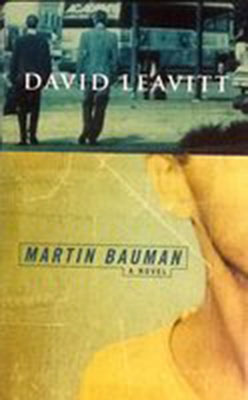
September 29, 2000.
Although I have seen/heard him before, I was very impressed by David Leavitt’s reading at A Different Light of the opening of Martin Baumann.
For one thing, it had some nonwhite characters. It was also a self-contained story with two happy endings. Quite funny. With what seemed some stretches to use some rarely used, polysyllabic words (seeking precision? le mot just? perhaps, but some seemed pretentious).
He also tried hard to answer questions rather than talk around them. And was obliging and friendly signing books.
When I arrived at the store an employee said she would have to ask the author if he was willing to sign more than the current book. From previous experience, I was pretty sure that he would, and she announced that he would sign as many books as people brought him. I decided that he is gracious, not just ingratiating. Don’t all writers want to be loved, whether or not what they write is ingratiating, even those who seek to upset readers with their writing? I think so. I don’t pander to readers, but I want to be loved—at least by discerning ones (the unhappy few who appreciate my style and viewpoint).
In the Q&A, Leavitt explained that the book started from the toenail of a woman he knows (I forget whether it was an aunt or a friend) falling off (from a fungus). In general, he usually starts by trying to write about something that really happened, but finds some parts unsatisfactory as story and imagines different developments.
Leavitt is now teaching at the University of Florida but says he still lives in Italy. He recommends living outside the country as early and as long as possible for young writers. Don’t move to New York to be near publishers, he advises. Living in a foreign language, he says, allows perspective on one’s own language and culture. Living in Italy makes him very aware of which English words are derived from Latin, which are Anglo-Saxon (e.g., mirror vs. looking-glass).
However, he felt that America was becoming more remote and that he needed to spend more time here to remain in touch with what is going on. When asked what struck him about returning to the Bay Area, where he grew up, he said that it was the realization that he could never afford to live in San Francisco or Palo Alto. Although it makes writing every day impossible (and it is dangerous not to write every day), he likes having a regular paycheck and benefits. His father is pleased that he finally has a job, he reported.
Martha Stone, writing of Edmund White (specifically Austen in The Married Man) [1]“A Brief History of the Memoir-Novel.” Harvard Gay & Lesbian Review, Spring 1999 (6.2), p4. wrote of his being “full of flaws to which he’s ever eager to confess.” This seems to me to apply to Leavitt’s stand-ins in similarly autobiographical fiction. White himself, in an interview in the same issue of GLR, says that “since homosexuality involves sex, then you could say that the best mode of self-acceptance would be an erotic one.”
This sexual self-acceptance is precisely what many gay readers have wondered about in Leavitt’s fiction (at least before Arkansas; although Leavitt is less the celebratory of it there, it has some of the defiance of the unashamed).
29 September 2000
©2000, 2016, Stephen O. Murray

